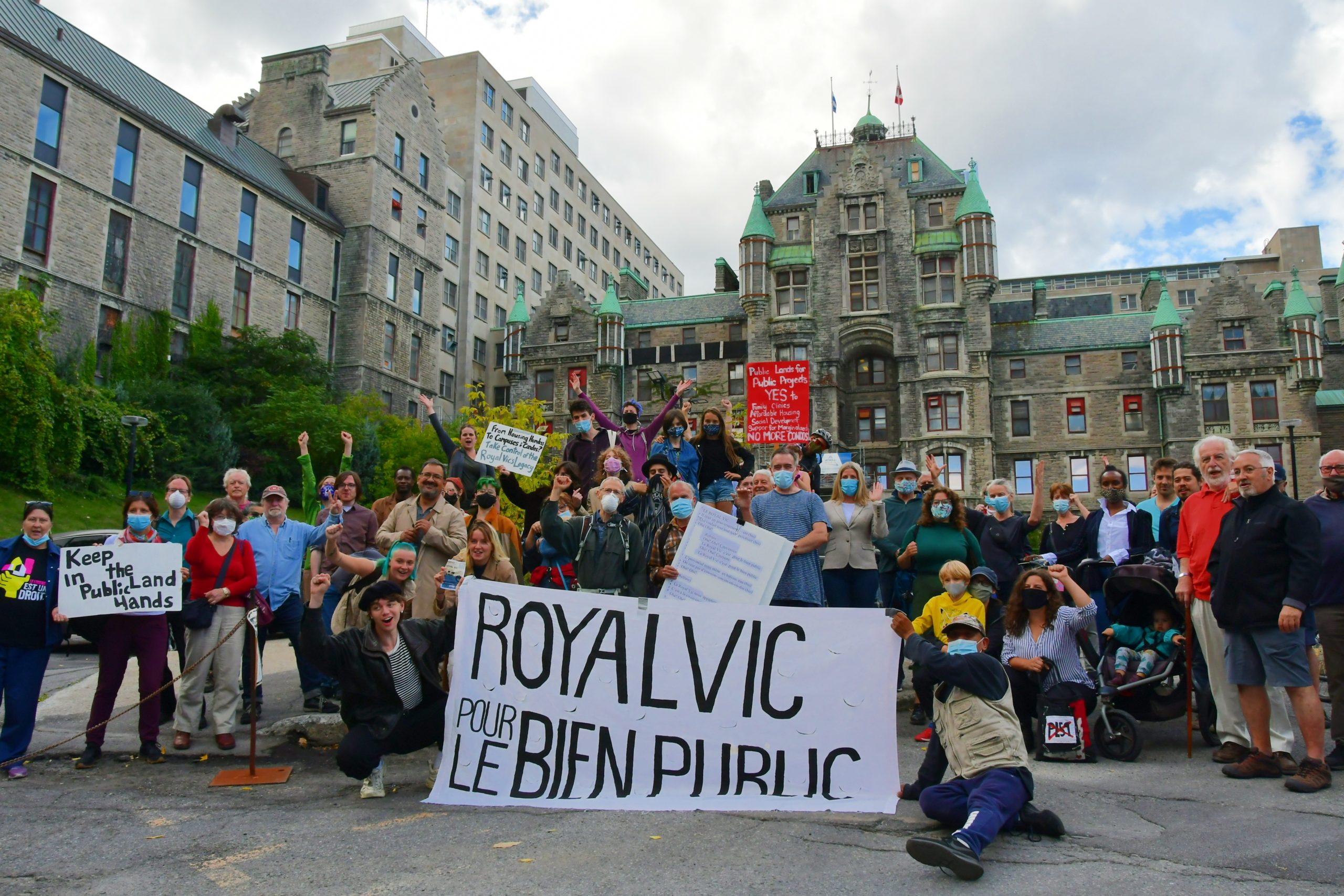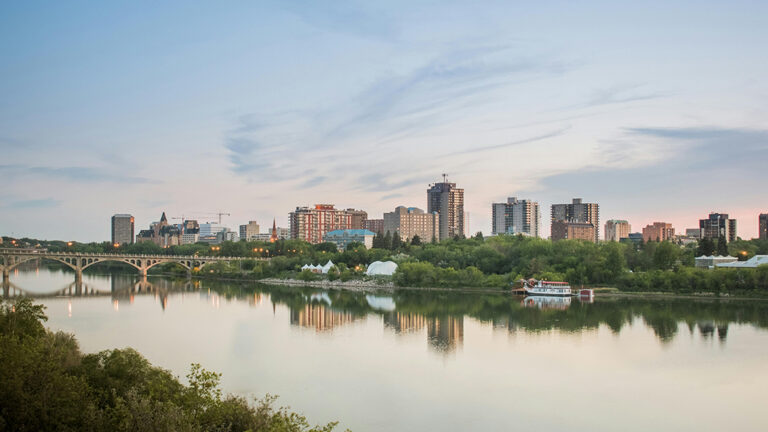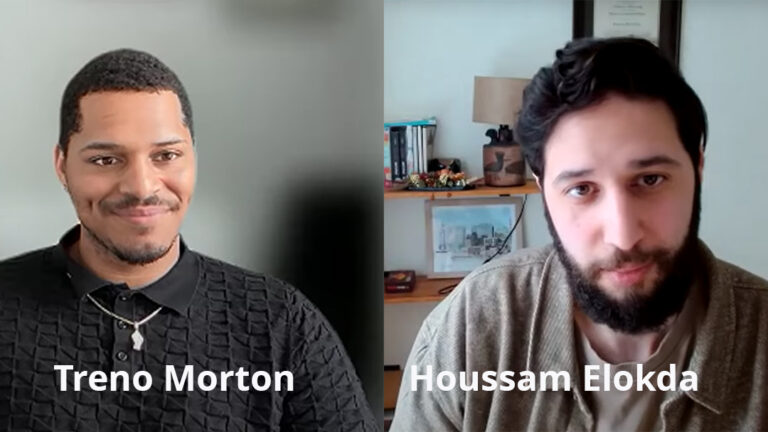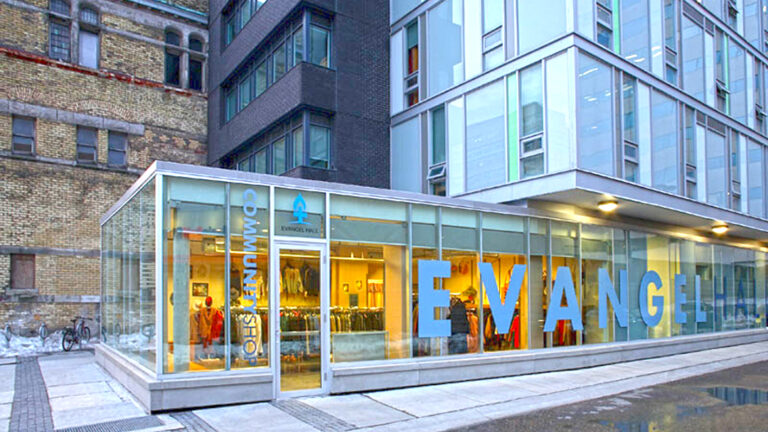Montreal’s Milton Park sector has a long history of mobilizing citizens against the development of large private projects and in favour of social and community housing. And the battle isn’t over. The Milton Park Citizens’ Committee has continued to rally the populace, these days primarily over the redevelopment of the former Royal Victoria and Hôtel-Dieu hospitals.
The Milton Park Citizens’ Committee moved a few weeks ago to its new location on Park Avenue, which was previously the Urban Ecology Centre. “This is a community-based facility,” says Nathan McDonnell, who coordinates the activities of the committee in this neighbourhood located on the southwest edge of Montreal’s trendy Plateau-Mont-Royal borough.
At Nathan’s suggestion, we conduct the interview on the roof of the building with its beautiful container gardens. From this perspective, we have a clear view of the large apartment towers, offices and hotel (now a university residence) erected in the 1970s by a private developer, against which citizens mobilized as early as 1968.
Although the five towers still stand, the mobilization was successful. There could have been many more, but promoters abandoned Phases 2 and 3 of the project. Where there might have been more skyscrapers, six non-profit and 16 housing co-ops were born. The story “shows that it’s possible [to make a difference],” Nathan believes.
Fifty years later, however, the fight is far from over. Today, the committee is fighting to ensure that two huge neighbourhood buildings, former hospitals integrated into two mega university hospitals, remain public buildings. Reclaiming the sites for community projects is at the heart of the committee’s activities.
“One thing we absolutely want is that the Royal Victoria site not to be privatized,” says Nathan. “Even [if it’s] a campus project for [McGill] University, there is a strong preference the land not be given to the university; that the government keeps ownership, to prevent privatization in the future.”
“We also want the other pavilions on the site to be used for community needs, especially community housing including housing for the elderly and intergenerational housing.”
Mobilization is work
The Community Housing Transformation Centre provided $49,955 to the Milton Park Citizens’ Committee through its Community-Based Tenant Initiative fund.
Among other things, the grant will allow the group to pay the salaries of employees such as Nathan that are essential to effective tenant engagement. Nathan is now in charge of the committee’s mobilization but worked for several years as a volunteer on the committee, in addition to living in the neighbourhood, first in a non-profit housing unit and now in a co-op.
“Those [former hospital sites] are so big and complex, and it takes times to mobilize residents on these issues”, Nathan adds. “That is why having a grant is extremely important. Because it’s very difficult [to get] funding for tenant engagement.”
The mobilization affects different generations, he notes. “To me, it’s an intergenerational movement. There are older people, aged 60 and over, who have been involved for a long time, and there are also young people, students.”
In recent months, the Milton Park Citizens’ Committee has organized several outreach and engagement events with citizens. These include citizen assemblies and public education workshops.
For example, “Who owns the city? Rethinking Citizen Power and Popular Planning” included a series of workshops on, among other things, financing and project design, and collaboration in a multi-network landscape. Organized in October with community groups from other parts of Montréal, it brought together 80 people.
The committee also conducted a survey of 350 people to find out what the public wants for the Royal Victoria site. “The Québec government makes plans, the university makes plans, the municipality makes plans … But we really wanted to know what people want,” says Nathan. According to the results, housing—whether social, co-op, transitional, student, or shelter—tops the list of topics addressed by survey respondents.
The committee is also working on preparing a brief for hearings organized by the Montréal Public Consultation Office about the site of the former hospital.
“When the public consultation is over, our engagement work certainly won’t be over,” says Nathan. “It has to be followed up. It is one thing to hold public consultations, and it’s another to make sure that those recommendations are put in practice.”
‘Strained relationships’
In recent years, Milton Park has experienced an increase in homelessness, including Indigenous homelessness. A shelter, previously located in another area of the city, moved to the neighbourhood in 2018 when the church that had housed it was sold for condo development. Neighborhood residents complained. Media reports talk about “strained relationships” and “difficult cohabitation.”
“It’s a complex issue,” says Nathan. “But it shows the urgent need for serious, permanent solutions,” says the coordinator. “A shelter is good, it’s important, it’s saving lives, but we have to go beyond shelters. Part of the solution is housing, part of the solution is more culturally appropriate services for the Indigenous homeless community.



